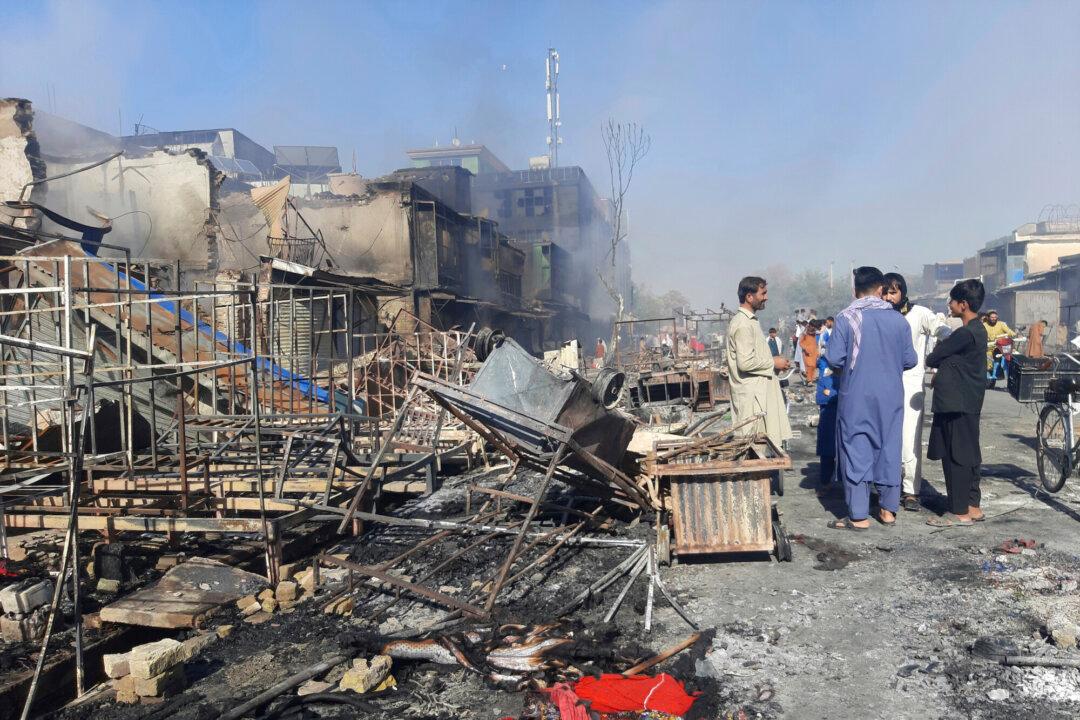Afghanistan is in a state of chaos, with the Taliban seizing nine provincial capitals, including two on the night of Aug. 10. As the terrorist group ignores peace negotiations and continues to kill civilians, prisoners, and government leaders, an outcry for a change in U.S. policy is growing.
“Given the Taliban’s behavior lately, U.S. President Joe Biden’s decision to rapidly withdraw U.S. forces from Afghanistan appears increasingly questionable,” five former U.S. diplomats to Afghanistan—James Cunningham, Hugo Llorens, Ronald Neumann, Richard Olson, and Earl Anthony Wayne—wrote in an analysis published by the Atlantic Council on Aug. 6.





